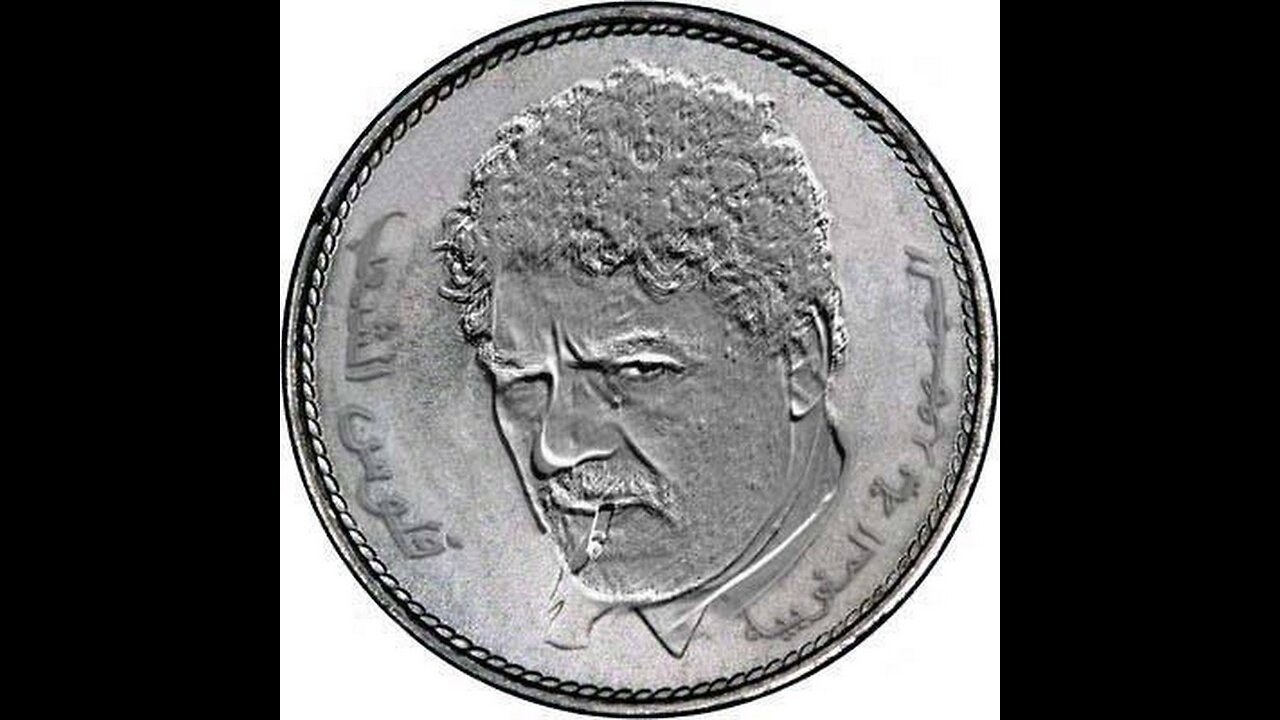Premium Only Content

Prosecuted in Morocco by French/Zionist's agents.
However, in the second part of the nineteenth century, Morocco’s weakness and instability invited European intervention to protect threatened investments and to demand economic concessions. Following the Hispano-Moroccan War of 1859–1860, Spain obtained the recognition by Morocco of its perpetual sovereignty over Ceuta, Melilla and the Chafarinas Islands as well as of the territory of Ifni. The first years of the twentieth century witnessed a rush of diplomatic maneuvering through which the European powers, France in particular, furthered their interests in North Africa.[13]
French activity in Morocco began at the end of the nineteenth century. In 1904, the French government was trying to establish a protectorate over Morocco and had managed to sign two bilateral secret agreements with Britain (8 April 1904, see Entente cordiale) and Spain (7 October 1904), which guaranteed the support of the powers in question in this endeavor. That same year, France sponsored the creation of the Moroccan Debt Administration in Tangier. France and Spain secretly partitioned the territory of the sultanate, with Spain receiving concessions in the far north and south of the country.[14]
First Moroccan Crisis: March 1905 – May 1906
Main articles: First Moroccan Crisis and Algeciras Conference
The First Moroccan Crisis took place owing to the imperial rivalries of the great powers, in this case, between Germany on one side and France, with British support, on the other. Germany took immediate diplomatic action to block the new accord from going into effect, including the dramatic visit of Wilhelm II to Tangier on 31 March 1905. Kaiser Wilhelm tried to get Morocco's support if they went to war with France or Britain, and gave a speech expressing support for Moroccan independence, which amounted to a provocative challenge to French influence in Morocco.[15]
In 1906, the Algeciras Conference was held to settle the dispute. Germany accepted an agreement in which France agreed to yield control of the Moroccan police, but otherwise retained effective control of Moroccan political and financial affairs. Although the Algeciras Conference temporarily solved the First Moroccan Crisis it only worsened international tensions between the Triple Alliance and the Triple Entente.[16]
French invasion
Main articles: Bombardment of Casablanca (1907), Émile Mauchamp, and French conquest of Morocco
The assassination of Emile Mauchamp in Marrakesh, taken casus belli by France
1909 Morocco commemorative medal—distributed to French soldiers that participated in the French invasion of Morocco
The French military conquest of Morocco began in the aftermath of Émile Mauchamp's assassination in Marrakesh on 19 March 1907.[17] In the French press, his death was characterized as an "unprovoked and indefensible attack from the barbarous natives of Morocco."[18] Hubert Lyautey seized his death as a pretext to invade Oujda from the east.[18]
The French cruiser Gloire in the Bombardment of Casablanca August 1907, printed on a postcard
In the summer of 1907, tribes of the Chaouia led a revolt against the application of terms of the 1906 Treaty of Algeciras in Casablanca, killing nine European laborers working on the rail line between the port and a quarry in Roches Noires.[19] The French responded with a naval bombardment of Casablanca from 5–7 August, and went on to occupy and "pacify" Casablanca and the Chaouia plain, marking the beginning of the French invasion from the west.[20][21]
Hafidiya
Main article: Hafidiya
Sultan Abdelaziz did virtually nothing in response to French aggressions and occupation of Oujda and Chaouia. As a result, there was growing pressure for a jihad in defense of Morocco, particularly from Muhammad al-Kattani and the people of Fes. After the southern aristocrats pledged support to the sultan's brother, Abd al-Hafid, the people of Fes also pledged their support, though qualified by an unprecedented Conditional Bay'ah.[22] France supported Abdelaziz and promoted him in their propaganda newspaper Es-Saada (السعادة).[23] After defeating Abdelaziz in battle in 1908, Abd al-Hafid became the recognized leader of Morocco in 1909.
Agadir Crisis
Main article: Agadir Crisis
-
 1:05:28
1:05:28
Sports Wars
3 hours agoLebron GOES OFF Over Bronny Hate, Pereira LOSES Belt To Ankalaev At UFC 313, Xavier Worthy Arrested
3.85K4 -
 10:27
10:27
Tactical Advisor
1 day agoDMR or SPR for Civilian Use?
25.3K5 -
 8:21
8:21
DEADBUGsays
1 day agoThe Crossbow Killer
12.1K8 -
 8:40
8:40
Tundra Tactical
20 hours ago $5.53 earnedThe Executive Order Wishlist.
25.1K2 -
 7:22:52
7:22:52
SpartakusLIVE
19 hours agoSaturday SPARTOON Solos to Start || Duos w/ StevieT Later
104K2 -
 28:40
28:40
SLS - Street League Skateboarding
8 days agoTOP MOMENTS IN WOMEN’S SLS HISTORY! ALL THE 9’s - Rayssa Leal, Leticia Bufoni, Chloe Covell & more…
71.8K11 -
 2:03:03
2:03:03
The Connect: With Johnny Mitchell
16 hours ago $3.88 earnedHow Mexican & Chinese Cartels Control Illegal Marijuana Cultivation In America Using SLAVE Labor
20.2K4 -
 14:46
14:46
Mrgunsngear
17 hours ago $2.21 earnedPrimary Arms GLx 1x Prism With ACSS Reticle Review
26K8 -
 22:37
22:37
Degenerate Plays
17 hours ago $0.36 earnedI'm A Psychic Now - Elden Ring : Part 73
14.2K -
 2:32:02
2:32:02
Jamie Kennedy
10 hours agoEp. 195 Horror Legend Barbara Crampton
19.5K1